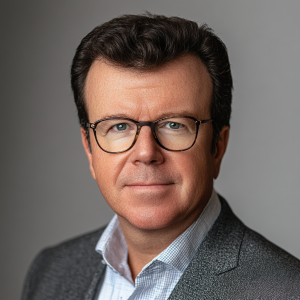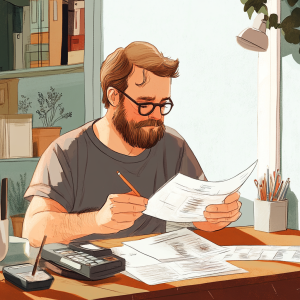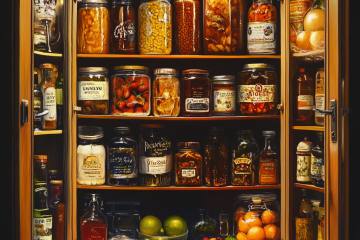
Neil Cavuto
Neil Cavuto, a highly respected financial journalist, once made a thought-provoking statement about personal responsibility: “It’s about food. It’s about your home. It’s about your life. The government is worried about all of the above. All I’m saying is you should be worried they’re worried. Here’s why: They’re telling you that you can’t take care of yourself. You can’t be trusted with what you put in your mouth or what you sign on the mortgage dotted line. So they’ll tell you what to put in your mouth and they’ll save you from what you signed on that dotted line. Does anyone see a trend here? Personal responsibility has now become government responsibility.”
This powerful quote serves as a wake-up call, highlighting a growing trend of dependency on external entities, particularly the government, to manage our lives. But what if we viewed this not as a cause for alarm, but as an opportunity for empowerment? Let’s explore how we can reclaim personal responsibility in the key areas Cavuto mentions: food, home, and life.
When it comes to food, Cavuto points out that we’re often told we “can’t be trusted with what [we] put in [our] mouth.” But the truth is, we’re more than capable of making informed decisions about our nutrition. Taking charge of our diet doesn’t have to be complicated. It can start with something as simple as learning to read food labels and understanding basic nutrition. By educating ourselves, we become empowered to make choices that align with our personal health goals.
Cooking at home is another powerful way to take control of our nutrition. When we prepare our own meals, we have full control over the ingredients and portions. This doesn’t mean you need to become a gourmet chef overnight. Start with simple recipes and gradually expand your culinary skills. You might be surprised at how satisfying it is to create a meal from scratch.

Backyard gardens can feed a family of 4 for a year.
For those interested in taking it a step further, growing your own food can be a rewarding experience. Even if you don’t have a large garden, you can start small with a few herbs on your windowsill. Not only does this provide you with fresh ingredients, but it also gives you a deeper appreciation for where your food comes from.
Moving on to the topic of home, Cavuto mentions the “mortgage dotted line,” suggesting that we’re not trusted to make our own housing decisions. But our homes are our sanctuaries, and we have the power to manage them effectively. Financial literacy is key here. By educating ourselves about mortgages, interest rates, and housing markets, we arm ourselves with the knowledge needed to make informed decisions.
Budgeting is another crucial aspect of home management. Creating and sticking to a household budget might not sound exciting, but it’s a powerful tool for financial stability. It allows you to track your expenses, save for future goals, and avoid financial pitfalls. Remember, every dollar you save is a step towards greater financial independence.
Home maintenance is another area where we can assert our self-reliance. Learning basic DIY skills can save you money and give you a sense of accomplishment. Start small – perhaps by fixing a leaky faucet or painting a room. As you gain confidence, you can tackle more complex projects. The internet is full of tutorials and guides to help you along the way.
Finally, let’s consider the broader aspect of life that Cavuto touches on. His quote culminates in the observation that “Personal responsibility has now become government responsibility.” But our lives are our own to lead, and we have the power to chart our own course.
Continuous learning is a key part of this. By constantly educating ourselves – whether through formal education, online courses, or simply reading widely – we expand our knowledge base and enhance our decision-making abilities. This applies to all areas of life, from career development to personal interests.

Financial Preparedness
Taking charge of our health and wellness is another crucial aspect of personal responsibility. This includes not just physical health through regular exercise and proper nutrition, but also mental health. Practicing stress management techniques, seeking help when needed, and prioritizing self-care are all ways we can take responsibility for our overall well-being.
Financial planning is another area where personal responsibility is crucial. Creating long-term financial goals and working towards them – through saving, investing, and planning for retirement – is a powerful way to secure your future. Remember, no one is more invested in your financial well-being than you are.
Cavuto’s words remind us that there’s a trend towards increased dependency. But we don’t have to be part of that trend. By embracing personal responsibility, we’re not rejecting help or community support. Instead, we’re recognizing our own power to shape our lives and contribute meaningfully to society.
The journey towards greater personal responsibility might seem daunting when we’re constantly told we “can’t take care of ourselves.” But you can prove that notion wrong. Start small. Choose one area from Cavuto’s list – food, home, or life – and focus on making improvements there.
Celebrate each step forward, no matter how small. Every positive choice you make is a victory, a step towards a more empowered you. As you progress, you’ll likely find that taking responsibility in one area naturally leads to improvements in others.
So, the next time you hear messages suggesting you can’t be trusted to manage your own affairs, remember Cavuto’s words. Then, ask yourself: “What can I do to take care of myself?” Chances are, you’re more capable than any external entity gives you credit for.

self-reliance? You got this!
You have the power to shape your life, to be prepared, to be resilient. It all starts with embracing personal responsibility. Don’t let anyone tell you that you can’t take care of yourself. You’ve got this – now go out there and take charge of your world!


